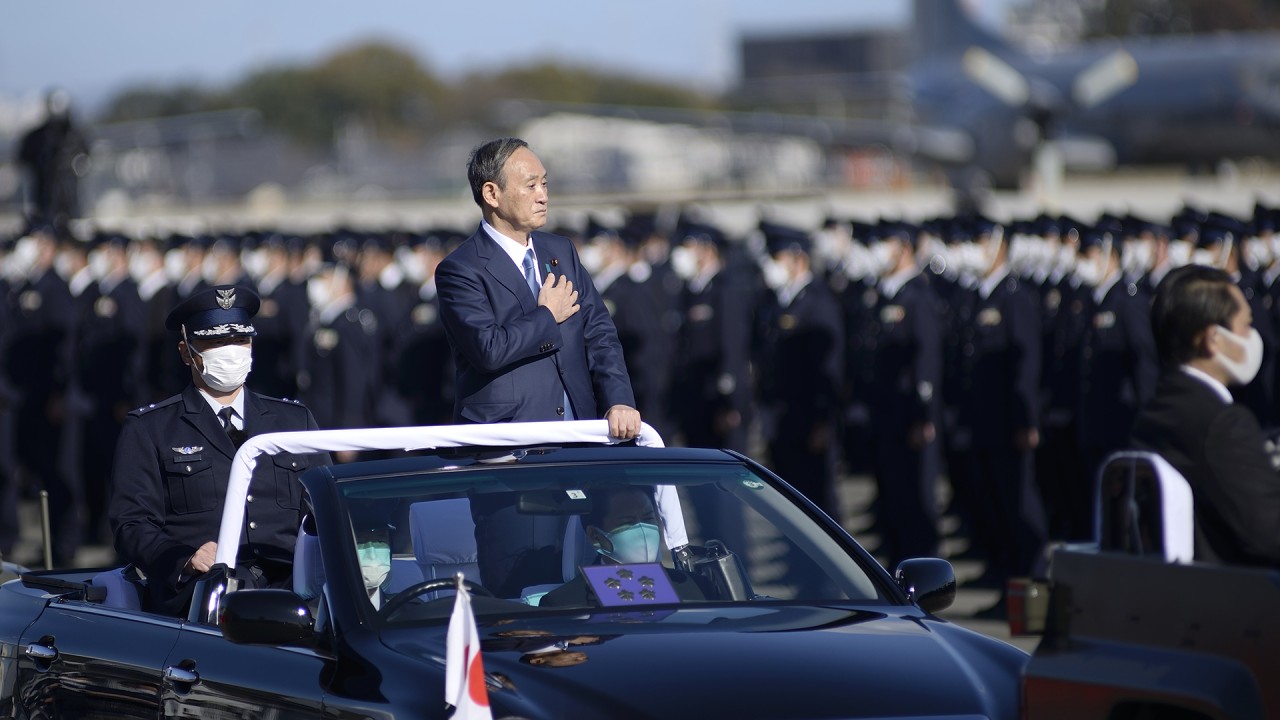
In Japan, Shinzo Abe’s ‘cherry blossom’ scandal has soured his legacy – but Suga stands to benefit, analysts say
- After former prime minister’s admission of financial irregularities while in office, experts believe his hopes of a back-seat leadership role, particularly in foreign policy, are over
- But his fall from grace could end up strengthening the position of PM Yoshihide Suga, who has risen above bad press affecting the ruling Liberal Democratic Party
Abe appeared in the Diet last week to apologise for the indictment of his secretary, Hiroyuki Haikawa, on suspicion of violating the Political Funds Control Law. Despite repeated previous denials, Abe admitted that his political support group had paid a portion of expenses from various events and had attempted to conceal the illegal transactions in official reports.
Yet prosecutors have decided not to pursue formal charges against Abe on the grounds that there would be insufficient evidence to secure a conviction, even while local media reports suggest that he was less than truthful on the matter on at least 118 occasions.
“Even though [the financial irregularities] took place without my knowledge, I am keenly aware of my moral responsibility,” Abe said in the Diet. “I deeply regret it and offer my sincerest apologies to the people.”

01:29
Japan approves record US$52 billion defence budget
He added that he understood the affair has “undermined the public’s trust in politics”.
Kiyomi Tsujimoto, of the opposition Constitutional Democratic Party of Japan, refused to accept Abe’s apology and demanded that he resign from the Diet. Abe responded that he intended to stay on in politics “to recover the trust of the public”.
Jun Okumura, an analyst at the Meiji Institute for Global Affairs, believes he is unlikely to ever be able to achieve that aim.
“Any hope that he might have still had of being there to pick up the pieces if Suga’s administration had failed have now been shattered,” he said.
“On the face of it, this is not such a major scandal as Abe has himself escaped criminal proceedings because he has been able to shield himself by having his office and minions take care of these things and now take the blame. But he is completely sidelined from any future consideration as prime minister again or of playing a meaningful role behind the scenes.”
It is not clear if Abe did have future ambitions to take up the leadership of the party for what would be a third spell as prime minister, but he is still relatively young at 66 and has, until recently, been considered a safe pair of hands should the party suffer some damaging setback.
That Abe is himself the setback meant he would not get a third chance, Okumura said, and some of his most dearly held political ambitions, such as reforming the constitution, would not be realised.
The analyst also felt Abe would never get to play a role in signing a peace treaty with Russia and solving the issue of the sovereignty of disputed islands off northern Japan, and would also now have to play a back-seat role in next year’s Tokyo Olympic Games.
Hiromi Murakami, a professor of political science at the Tokyo campus of Temple University, agreed that Abe was now “done”.
Abe really wanted to play a leadership role from behind the scenes, particularly in foreign policy, but this really ends those ambitions
“He will realise that he has come to the end of his run with a really bad image,” she said. “And he will think that is a very unfortunate image to have as the legacy of his time as prime minister.”
In keeping with public sentiment and that espoused by many newspaper editorials, Murakami said it was very difficult to believe Abe’s protestations that he knew nothing of illicit payments of around 9 million yen (US$86,900) over the course of many years, or that his secretary would have personally spent that money without explaining such a sizeable hole in the office’s accounts to the prime minister.
“Abe really wanted to play a leadership role from behind the scenes, particularly in foreign policy, but this really ends those ambitions,” she said. “I’m sure that the LDP will want to put this behind them as quickly as possible and to move on because Suga has an election to prepare for next year.”
Ironically, Okumura said Abe’s fall from grace might actually help Suga cement his position as leader. “This is all hitting other people in the party, but not Suga because he is not part of any faction,” he said.

Suga’s position has arguably been further strengthened within the party by a number of other financial scandals – former agriculture minister Takamori Yoshikawa resigned last week for accepting 5 million yen (US$48,280) in illicit payments from an egg company, and former justice minister Katsuyuki Kawai has been implicated in a vote-buying scandal that can be traced back to before he took office. That has left faction leaders scrambling to deal with the bad press while Suga has been able to rise above the fray.
“I feel the suggestion that Suga is going to feel significant fallout from Abe’s problems is vastly overstated and that it will be an issue that drags the LDP down as a whole rather than Suga himself,” Okumura said.
“And while Abe will be remembered as the longest-presiding prime minister in Japanese history, he will also go down as a leader whose regime ended in a confluence of illness and scandals that sapped him of his political capital,” he added.

